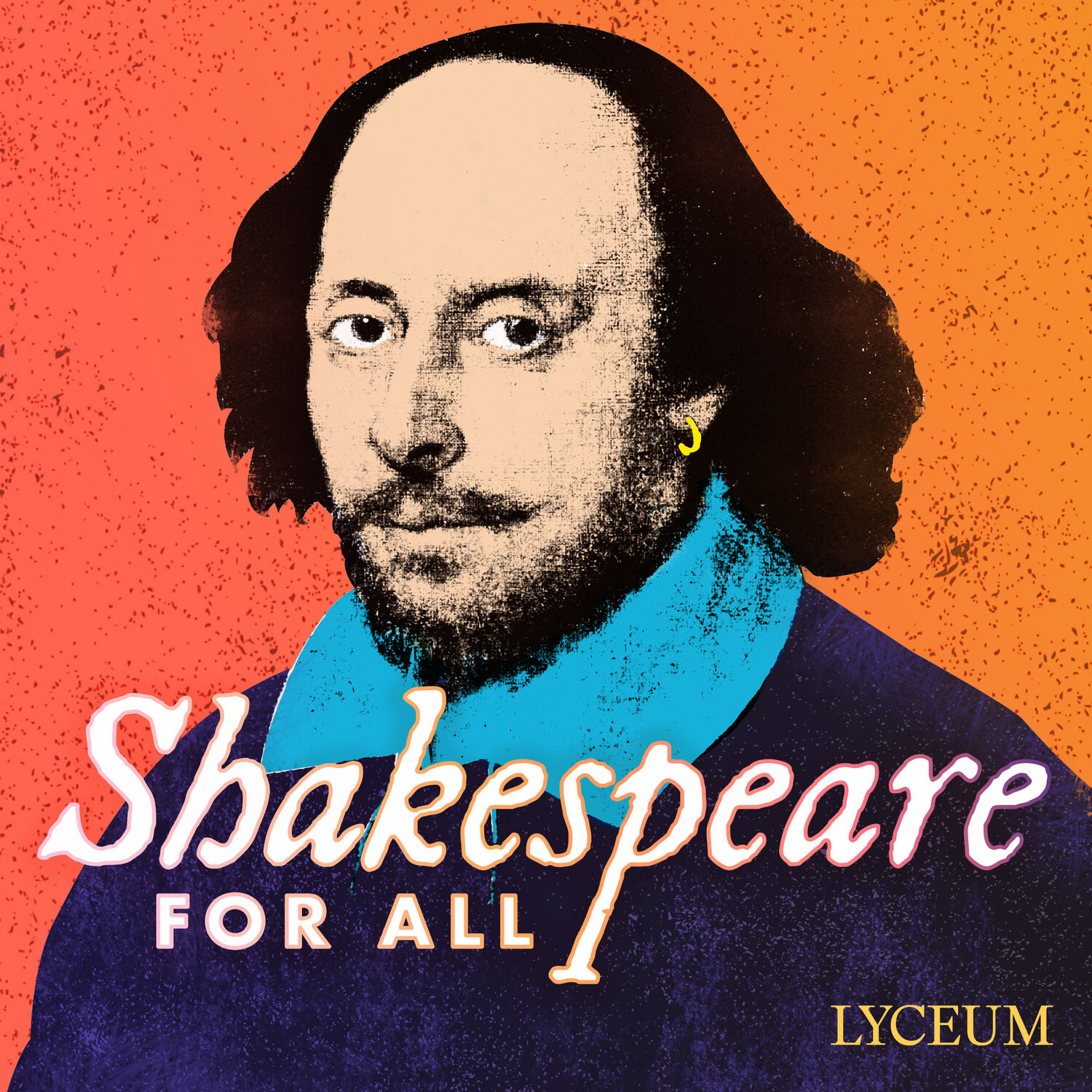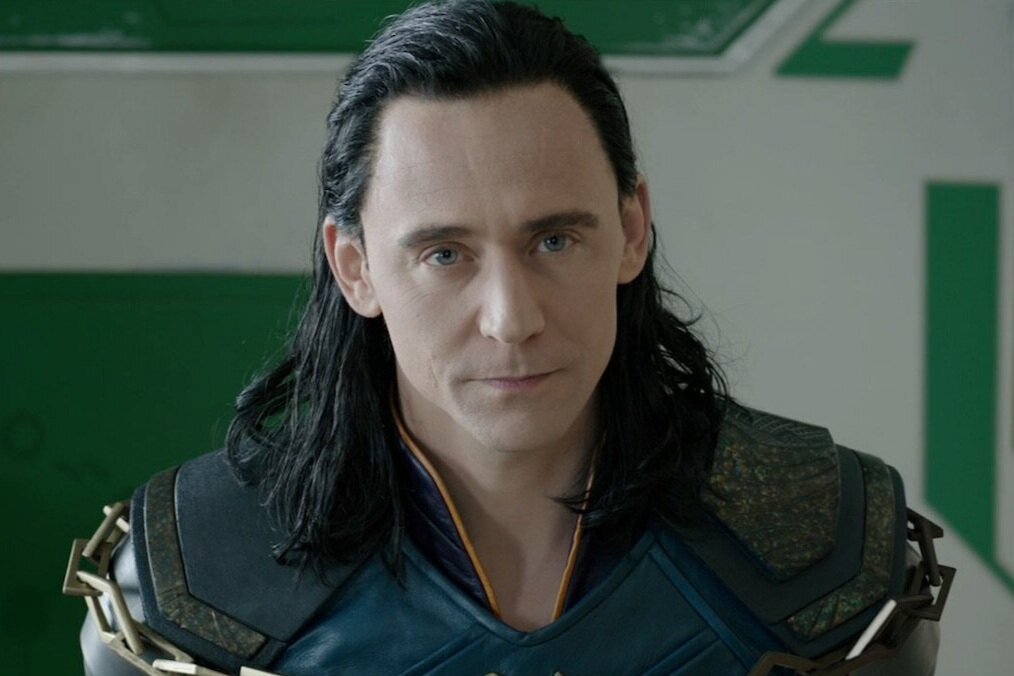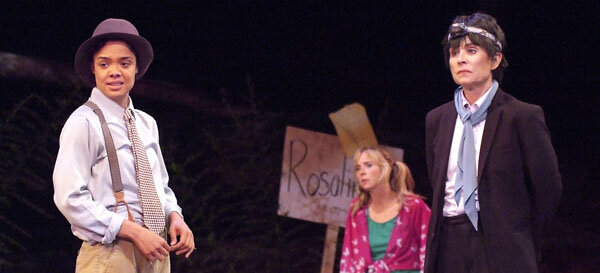Shakespeare’s Marvel Cinematic Universe
By Maggie Chiffer
This summer, Black Widow, the twenty-fourth installment in the Marvel Cinematic Universe (MCU), hits theaters. Millions of Marvel fans, like me, will flock to screens around the globe to watch this iconic saga continue. We’ll come for the intricate storytelling, the engaging actors, the stunning CGI, the high intensity, and the gripping action. We won’t come for William Shakespeare, but he’ll be there.
Sixty-one percent of MCU films have a first-credited actor who previously performed in one of Shakespeare’s plays — and when the credits roll, that number soars. Benedict Cumberbatch played Hamlet, Richard III, and then Doctor Strange. Tom Hiddleston played Posthumus Leonatus, Cassio, and then Loki. Tessa Thompson played Juliet, Rosalind, and then Valkyrie. People associate superhero films with Hollywood movie stars, so why do Shakespearean actors have such a strong presence in the MCU?
Tom Hiddleston as Cassio in ‘Othello’
Actors who play Marvel roles face the distinctive challenge of being human but needing to portray a superhuman. To overcome this challenge, they need specific tools in their acting arsenals. The modern and the Shakespearean acting traditions are quite different, and a training in modern acting does not neccessarily provide the skills necessary for an MCU role. A training in Shakespearean acting, however, does offer these skills, giving actors the linguistic adaptability and emotional range necessary to play Marvel’s towering characters.
The modern tradition, which grew from the ideas of the nineteenth-century director Constantine Stanislavsky, is the predominant technique used today. Stanislavsky advocated that performers approach their roles through “emotional memory.” This technique taught actors to access a character’s emotion by calling to mind a memory in which they had experienced the same emotion. This method may be effective when an actor is portraying someone with similar experiences, but it falls flat in the MCU.
No one has an “emotional memory” of waking up seventy years in the future, like Captain America, or of traveling to the afterlife to speak to his dead father, like Thor and Black Panther. To play superheroes, Marvel actors need a different approach.
The Shakespearean tradition teaches actors how to assume a role, not through their own emotional histories, but through the character’s words — in all their poetic and metrical specificity. As Peter Hall writes in Shakespeare’s Advice to the Players, Shakespearean acting coaches teach their students how Shakespeare’s meter dictates where to emphasize words; how his differing punctuation indicates where to pause, breathe, speed up, and slow down; and how his metaphors, similes, and puns suggest the tone of a scene. Together, these features of the written language indicate what the driving thought process and emotion behind the speech may be. When actors understand how to rely solely on linguistic form to infuse their characters’ dialogue with meaning and sentiment, they are freed from the confines of “emotional memory,” making them far more adaptable as performers.
Despite the fact that Shakespeare’s language is strikingly different from that of Marvel, the linguistic skills offered by the Shakespearean tradition are still highly transferable to the MCU. Marvel’s superheroes confront many of the same questions of existence, life, death, and morality that Shakespeare’s tragic heroes, such as Hamlet, King Lear, and Macbeth, face in his plays. It is often in a superhero’s moments of conflict or tragedy that Marvel scripts take on a poetic nature that alludes to Shakespeare’s writing. When faced with a superhuman moment in an MCU film, actors know how to rely on the linguistic form of the script to deliver a compelling line, regardless of their own emotional connectivity to the situation.
Benedict Cumberbatch is a Shakespearean actor who demonstrates linguistic adaptability in his Marvel performance. In the MCU’s 2016 film Doctor Strange, Cumberbatch plays Dr. Stephen Strange, a neurosurgeon who seeks healing from the Ancient One at Kamar-Taj following a tragic car accident. At first, Strange refuses to believe in the Ancient One’s supernatural methods, declaring: “We are made of matter and nothing more. You’re just another tiny, momentary speck within an indifferent universe.” Though subsequent events in the film change Strange’s viewpoint, he certainly comes to Kamar-Taj as quite the skeptic.
As a human, Cumberbatch does not have an “emotional memory” of reacting to the declaration that supernatural magic exists. He seems to adapt by turning to his Shakespearean training, employing some of the strategies that Louis Fantasia puts forth in his book, Instant Shakespeare. Fantasia identifies five basic principles in the method he uses to teach Shakespearean acting, which include: “Make the nouns sound like what they mean,” “Repunctuate for breath,” and “Play the ‘I/thou’ relationships,” which means emphasize the pronouns. This third principle is the first one that Cumberbatch uses, forcefully saying We at the beginning of the sentence. In doing so, he indicates to the Ancient One that he is speaking for both of them, believing that he knows more about her world than she does. Cumberbatch also raises his voice to say the noun “matter,” which draws it out of the dialogue. He also makes sure to take intentional breaths at the punctuation marks, conveying the urgency and conviction behind what Strange is saying.
When Marvel casts actors, they look for linguistic adaptability coupled with emotional range, another valuable skill offered by the Shakespearean tradition. Sarah Finn, Marvel’s Casting Director, makes it clear in an interview with The Washington Post that every MCU actor must be able to dive to tragic depths and scale comedic heights. Though there are many modern actors who are skilled in comedy or skilled in tragedy, there are few elite, award-nominated films today that require actors to seamlessly mix both of these genres. The range necessary to blend the two is therefore less common among modern actors. However, Shakespeare loved to mix comedy and tragedy, and the Shakespearean tradition prepares actors to switch skillfully between them.
Tessa Thompson is a Shakespearean actress who demonstrates emotional range in her Marvel performance. In the MCU’s 2017 film Thor: Ragnarok, Thompson plays Valkyrie, a warrior who meets Thor, God of Thunder, on the landfill planet Sakaar, aiding him in his fight against the evil Hela. After first appearing as a comedic drunk, Valkyrie tells Thor: “Look, I’ve spent years in a haze trying to forget my past. Sakaar seemed like the best place to drink and forget and to die one day … but I don’t want to forget. I can’t turn away anymore. So, if I’m going to die, well … it may as well be driving my sword through the heart of that murderous hag.”
Though Valkyrie is a comedic character in a comedic movie, she has moments of gravity and reflection, such as this one. Thompson has the range to play to both types of moments, given her experience with comic (Olivia and Rosalind) and tragic (Juliet and Cordelia) Shakespearean characters. Even though Valkyrie is making a joke about Hela, the “murderous hag,” Thompson delivers the line “if I’m going to die” with deference to the tragic implications that Valkyrie may lose her life in this battle.
Tessa Thompson in “As You Like It”
As the highest grossing film franchise in the world, the MCU is arguably today’s most popular cinematic series. In Shakespeare’s own era, his most popular play, based on editions printed, was Henry IV Part I, which epitomized Shakespeare’s mixing of comedy and tragedy. In this play, Hotspur is a tragic character, a fearless warrior who dies in the Battle of Shrewsbury. Falstaff, on the other hand, is a comic character, a fat old man who loves to steal, drink, and joke around with Prince Hal. The play gives significant airtime to both of them, and even blends their two genres. In one scene from the play, Hal pretends to be his father, King Henry, while Falstaff pretends to be Hal — and they move from uproarious comedy to a deadly serious anticipation of their later strife.
Shakespeare’s contemporary Sir Philip Sidney criticized plays like Henry IV that “bee neither right Tragedies, nor right Comedies, mingling Kinges and Clownes.” Sidney opposed mixing tragedy and comedy together in one story. In 1765, however, the Shakespearean editor Samuel Johnson noted that this mixture is, in large part, what gives Shakespeare’s work its definitive character and its appeal: “Shakespeare has united the powers of exciting laughter and sorrow … Almost all his plays are divided between serious and ludicrous characters.” Johnson went on to say, “[T]he end of poetry is to instruct by pleasing. That the mingled drama may convey all the instruction of tragedy or comedy cannot be denied, because it … approaches nearer than either to the appearance of life.”
Shakespeare’s plays, Johnson claimed, are more lifelike — and more enjoyable — because they blend comedy and tragedy. This is undoubtedly what pleases fans so much about the MCU, too. We’re moved when Dr. Strange accepts his mission from the Ancient One as she dies. We also love it when Mordo hands Dr. Strange a piece of paper and Dr. Strange asks, “What’s this, my mantra?” and Mordo answers, “The wi-fi password.” We’re distressed when the Avengers appear to be losing the Battle of Wakanda, but we laugh when, mid-fight, Captain America responds to Groot’s “introduction” of “I am Groot” with “I am Steve Rogers.” The ability to shift between such emotional extremes and make both extremes convincing is honed by a training in Shakespeare acting. Actors with Shakespearean experience such as Tessa Thompson, Benedict Cumberbatch, and many others possess the range necessary to meet both the comic and tragic demands of Marvel roles with skill and ease.
Unsurprisingly, the cast of Black Widow is riddled with Shakespearean actors such as Florence Pugh, David Harbour, and O-T Fagbenle. Marvel’s continual employment of Shakespearean actors underscores the importance of linguistic adaptability and emotional range within its vast universe. While we may continue to enjoy MCU movies for their aesthetics, Shakespearean acting merits appreciation for its role in bringing compelling delivery of language and the blending of comedy and tragedy to the Marvel world, which in turn keeps audiences interested and engaged. If we recognize this, we will see that the Marvel Cinematic Universe derives one of its greatest superpowers from William Shakespeare.
Maggie Chiffer is a freshman at Harvard College majoring in English and minoring in Educational Studies. When she’s not reading Shakespeare or watching Marvel movies, she is an author for Harvard College Children’s Stories and enjoys writing poetry.





